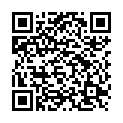|
|
|
| Module code: BITM-W-08 |
|
|
4SU (4 hours per week) |
|
5 |
| Semester: according to optional course list |
| Mandatory course: no |
Language of instruction:
German/English/French/Spanish |
Assessment:
Project (can be repeated annually)
[updated 21.03.2018]
|
DFBTO-W-06 (P620-0534) International Tourism Management, Bachelor, ASPO 01.10.2018
, semester 5, optional course
DFITM-W-08 International Tourism Management, Bachelor, ASPO 01.10.2020
, optional course
BITM-W-08 (P440-0085) International Tourism-Management, Bachelor, ASPO 01.10.2013
, optional course
BITM-W-08 (P440-0085) International Tourism-Management, Bachelor, ASPO 01.10.2015
, optional course
BITM-W-08 (P440-0085) International Tourism-Management, Bachelor, ASPO 01.10.2017
, optional course
BITM-W-08 (P440-0085) International Tourism-Management, Bachelor, ASPO 01.10.2020
, optional course
Suitable for exchange students (learning agreement)
|
60 class hours (= 45 clock hours) over a 15-week period.
The total student study time is 150 hours (equivalent to 5 ECTS credits).
There are therefore 105 hours available for class preparation and follow-up work and exam preparation.
|
Recommended prerequisites (modules):
None.
|
Recommended as prerequisite for:
|
Module coordinator:
Prof. Dr. Ralf Rockenbauch |
Lecturer: Prof. Dr. Ralf Rockenbauch
[updated 05.09.2011]
|
Learning outcomes:
After successfully completing this module, students will have deepened their knowledge of:
- the economic dimensions in the context of tourism, mobility and transport,
particularly with regard to the interrelationships in the supply management of mobility and
and transport service providers.
- the approaches of modern consumer theory in the context of tourism, mobility and
transport
- the particularities of marketing
mobility and transport services
- the strategic marketing of mobility and transport service providers
- the marketing mix tools (product, price, communication and
distribution policy) in the regional, national and international context
- the specific characteristics of the tourism and transport sectors
- market structures, market participants in the tourism and transport sector (providers,
consumers, organisations)
- traffic simulations (traffic development,
distribution, allocation, choice of means of transport) and strategic planning of
the marketing instruments of mobility/traffic service providers.
- design (-ability) of international mobility consulting.
Students will:
- gain insights into the basic principles of managing mobility and transport services and will be able to analyze and present operational and organizational problems in organizations belonging to the tourism and transport industry (organizational change; special features of international tourism and transport organizations)
International and intercultural references
- Employment with (inter-) national mobility and
transport service providers.
- In the context of examples from international organizations, as well as businesses
in the mobility and transport sector
Practical references:
- Management and policy concepts in the mobility and transport sector
- Business and economic methods in
the mobility and transport sector
- Social competence
- Projects, guest lectures, excursions (together with students from different
semesters and courses of study)
- In particular, management concepts and methods in the context of tourism,
mobility and transport with high relevance for sustainable mobility management
Students will expand and deepen their skills in modern presentation techniques, project and team work and scientific work techniques.
After successfully completing this module, students will be able to:
- understand, analyze and map service-oriented issues and special features from the mobility/transport services sector in planning models
- apply basic planning and control methods in mobility and transport services management (strategic planning of marketing tools and operational implementation within the framework of projects)
- describe, develop, plan and design basic service-specific processes in mobility/transport service management,
- implement and control basic service-oriented strategies and concepts in mobility/transport service management (process policy as part of the marketing mix in mobility/transport service management)
- cooperate and evaluate within the scope of project management (focus/project definition, planning, project structuring, prioritization/derivation of analyses, activity planning, implementation, success control)
- apply the basics of process management to the establishment of control processes
- communicate more efficiently (pyramid principle) and interact with external parties and groups
- apply the principles of motivation and teamwork
[updated 17.09.2018]
|
Module content:
_Basics of mobility management
_Definition of transport science
_Interrelationships and problems in the transport sector
_Transport-economic indicators
_Economic approaches _ in particular modern consumer theory _ in the
transport sector
_Transport policy
_Institutions, objectives and instruments of transport policy
_Transport management
_Overview of the special operational features of the following transport modes:
rail, bicycle, air, private motorized transport and
shipping
_Planning processes and tools for tender planning in transport companies
_ from transport simulations to timetables
(traffic development, distribution, reallocation, choice of means of transport, network graphics,
rostering)
_Bid management for mobility/transport service providers
(network management German Railways and air transport; vehicles and infrastructure)
_Traffic simulations (development, distribution and reallocation of traffic,
choice of means of transport)
_Strategic marketing of mobility/transport service providers
_Sustainable mobility management
_Marketing mix tools (product, price, communication, distribution
and process policy) in (inter-) national, as well as inter and intramodal
context; modern consumer theory approaches in tourism and transport
[updated 17.09.2018]
|
Teaching methods/Media:
- Seminaristic lecture
- _SRL _ Self-regulated learning_
- Case studies (excursions, if necessary)
- Role playing
- Group and project work (independent development of a concept
and its presentation)
- Discussions with students and guests
- Presentations and preparation of documentations/compositions
On the basis of selected data and case studies, students will be taught to develop concepts independently, as well as implement their concepts and reflect upon them.
[updated 21.03.2018]
|
Recommended or required reading:
In addition to the basic literature already mentioned in the modules BITM-111 and BITM-320, the following literature is recommended:
_Meffert, H. (Hrsg.), Verkehrsdienstleistungsmarketing, Gabler, Wiesbaden, 2000
_Mobilitätsberatung _ Neue Lösungsstrategien im Konfliktfeld Verkehr,
Tagungsband zur Mobilitätsberaterkonferenz 1994, Graz, 1994
_Rockenbauch, Ralf, Verkehrskonzeptionen für die Zukunft unter besonderer
Berücksichtigung des Fahrradverkehrs _ Eine ökonomisch-politische Analyse,
Lang, Frankfurt, 1996
_Rockenbauch, R., Roth, J., Grundlagen zur Integration des Radverkehrs in die
zukünftigen Verkehrskonzeptionen in Mainz, Georg-Forster-Institut Mainz, 1997
_Sterzenbach, R., Conrady, R., Luftverkehr, aktuellste Auflage, Oldenbourg,
München
_Diederich, H., Verkehrsbetriebslehre, Gabler, Wiesbaden, 1977
_Diederich, H., Verkehrsbetriebslehre, in: Handwörterbuch der
Betriebswirtschaft, W. Wittmann et al. (Hrsg.), 5. Aufl., Stuttgart, Sp. 4551-
4559, 1993
_Grandjot, H., Verkehrspolitik, Grundlagen, Funktionen und Perspektiven für
Wissenschaft und Praxis, Hamburg, 2002
_Aberle, G., Transportwirtschaft, 4. Aufl., München, Wien, 2003
_Laaser, C., Wettbewerb im Verkehrswesen, Tübingen, 1991
_Frerich, J., Müller, G., Europäische Verkehrspolitik, Bd. 1 + 2 + 3, München,
Wien, 2004, 2006
_Letzner, V., Tourismusökonomie _ Volkswirtschaftliche Aspekte rund ums Reisen,
Oldenbourg, München, 2010
_Schröder, A., Das Phänomen der Low Cost Carrier und deren Beeinflussung raum-
zeitlicher Systeme im Tourismus, Materialien zur Fremdenverkehrsgeografie,
Heft 68, Trier, 2010
_Fit for Cruises: Teaching units under http://fit-for-cruises.fvw.de/
_Craig, C.S. and Douglas, S.P. (2005): International Marketing Research, 3rd.
Edition, Wiley, West Sussex
_Gilmore, A. (2003): Services Marketing and Management, Sage Publications,
London
_Kotler, P.; Keller, K. (2009): Marketing Management, 13.th Edition, Pearson
Education, London
_Internationales Verkehrswesen
_Managing Change in Tourism: Creating Opportunities - Overcoming Obstacles, Thomas Bieger, Peter Keller (Herausgeber), Berlin, latest edition
_weitere siehe: http://www.alexandria.unisg.ch/Publikationen/Zitation/Thomas_Bieger
_Letzner, V., Tourismusökonomie _ Volkswirtschaftliche Aspekte rund ums Reisen, Oldenbourg, München, 2010
_Institut für Mobilitätsforschung (Hrsg.), Erlebniswelten und Tourismus,
Springer, Berlin, 2004
In addition, project-specific introductory literature in the relevant (foreign) languages will be announced during the lectures.
[updated 21.03.2018]
|


